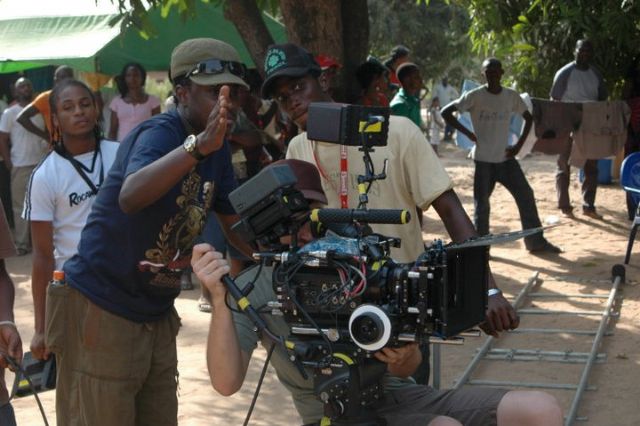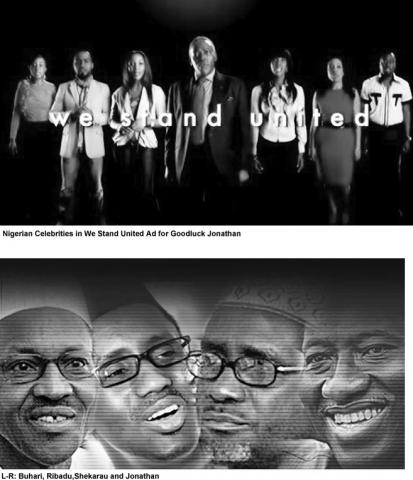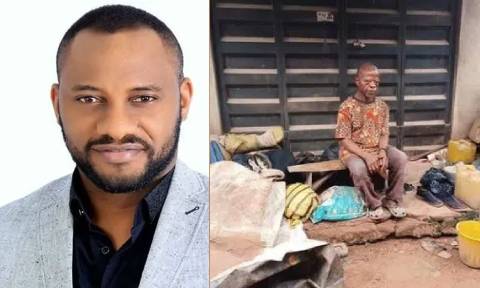
At Reading Nollywood, a symposium recently held at the University of Lagos, scholars and practitioners struggle to reconcile the ideal with realities of film business, writes AKEEM LASISI
When egg heads from different parts of Nigeria and beyond gathered at the University of Lagos to discuss Nollywood recently, their intention was to put different aspects of the film industry in intellectual perspectives. The international symposium titled Reading and Producing Nollywood achieved this aim to a great extent. But it also established the suspicion that usually defines the relationship between theory and practice.
It was, for instance, interesting to watch some key players in the Nollywood industry react to a critical accusation levelled against Nigerian film makers by Cornelius Onyekaba of Creative Arts Department, UNILAG at the symposium. While presenting his paper titled Retelling History and Changing Perceptions Through Movies: A Study of Jeta Amata’s Amazing Grace, Onyekaba had appraised the Amata’s work as one that fulfils the role of a film as a vehicle for positively influencing perceptions about one’s land. According to him, Amata explores the film provide a better understanding of the African side of the story of slavery.
While Onyekaba sought to establish the movie as a Black man’s voice telling the Black man’s story, he reprimanded many other producers for failing to use film to project what is good about Nigeria and Africa in general.
“Film is not just for entertainment,” he said. “Film is a weapon. But what we have so far is the case of the Nigerian producer putting in his money and wanting the money back immediately. Hence , you can have a Blood Money running from parts 1 to 6.”
Onyekaba’s message that Nollywood should ideologically and patriotically assert itself was clear to the practitioners in attendance at the event held at the Afe Babalola Hall of the university. The likes of script writer, Yinka Akanbi, and producer Madu Chikwendu,, however, felt that he did not take into consideration the reality of practice. First, Akanbi does not agree with Onyekaba on his claim that Nollywood has not reflected the dynamics of national existence enough. Besides, he noted, the film maker is, often, is first and foremost a businessman.
“A lot of people here don’t understand Nollywood,” Akanbi said. “They do not appreciate the fact that there is a symbiotic relationship between ant and society – as the likes of Soyinka and Shakespeare have proved. Are we saying that Nollywood is not reflecting Nigeria? You people want me to go and bring an image from the moon to reflect in my film?. For as long as Nigerians remain the way they are, you can’t get anything better from Nollywood.”
Onyekaba found support in a number of people that included an official of the National Film Film and Video Censors Board, Mrs. Patricia Bala, who noted that the board was concerned about how national institutions were portrayed in films produced in the country. According to the woman that assured the stakeholders that government agencies were ready to dialogue and work with the film makers, Nollywood has particularly battered the image of the police.
For Madu, however, government and all relevant agencies should be alive to their responsibilities if Nigeria will get such promotional films.
He explained, “How effective are the regulators? We are operating in a country where there is no co-production treaty. The Ministry of Information should set up funds for propaganda films. The National Orientation Agency should also fund such a film.”
But beyond such crossfire, the symposium convened by the Dean, Faculty of Arts, UNILAG, Prof. Duro Oni; a Lecturer, University of Alberta, Canada, Prof. Onokome Okome; and Bic Leu, a US Fulbright Research Fellow at UNILAG, established the contemporary Nigerian film industry as one significant enough for a broad scholarly intervention. Indeed, based on the richness of the various topics discussed, the industry stands to gain from it – in terms of film development from the story to the screen and eventually to marketing.
In his welcome address, the Vice Chancellor of the university, Prof. Adetokunbo Sofoluwe, commended the organisers for making the proverbial town meet the gown to advance the cause of the sector – especially when Lagos is the centre of the production of films, while UNILAG is the centre of academic research in the city.
Sofoluwe said, “As Nollywood becomes internationally renowned for its compelling stories, robust mode of production and wide-spreading socio-economic impact, it is important to have a forum like this symposium to reflect on the accomplishment and setbacks of the industry and to determine the next steps forward.”
The symposium also attracted heads of agencies such as the Chief Executive Officer of the Centre for Black Art and Culture, Prof. Tunde Babawale; the Managing Director of the National Film Corporation, Mr. Afolabi Adesanya; and the Executive Director of the National Institute for Cultural Orientation, Dr. Barclays Ayakoroma, who spoke on Giving Women Pride of Place in Nigerian Video Films: A Critical Reading of Andy Amenechi’s Egg of Life.
While Oni, who is also a former CEO of CBAAC, delivered a paper titled Locational Considerations in Nollywood Films: An Analysis of Tunde Kelani’s Arugba and Teco Benson’s Mission to Nowhere, Onokome spoke on Reading Nollywood: Distribution, Reception. Haynes, who came from Long Island University, US, delivered the keynote address.
Others include Dr E.A. Adedun, who spoke on From Yoruba to English: The Untranslatable in Selected Nollywood Movies; Prof. Ahmed Yerima (Scripting the Popular: Nollywood and the Art of Script Writing; Francoise Ugochukwu (Nollywood in Diaspora: A Cultural Tool); Marieke Wilson (Drama is God’s End-time Weapon: Economies of Revelation and the Politics of Representation in Nigerian Evangelical Film); and Senayon Sanyaolu (Igwe! Monarchy, Paradox and Cultural Passage in Nollywood: Some Preliminary Notes)


















